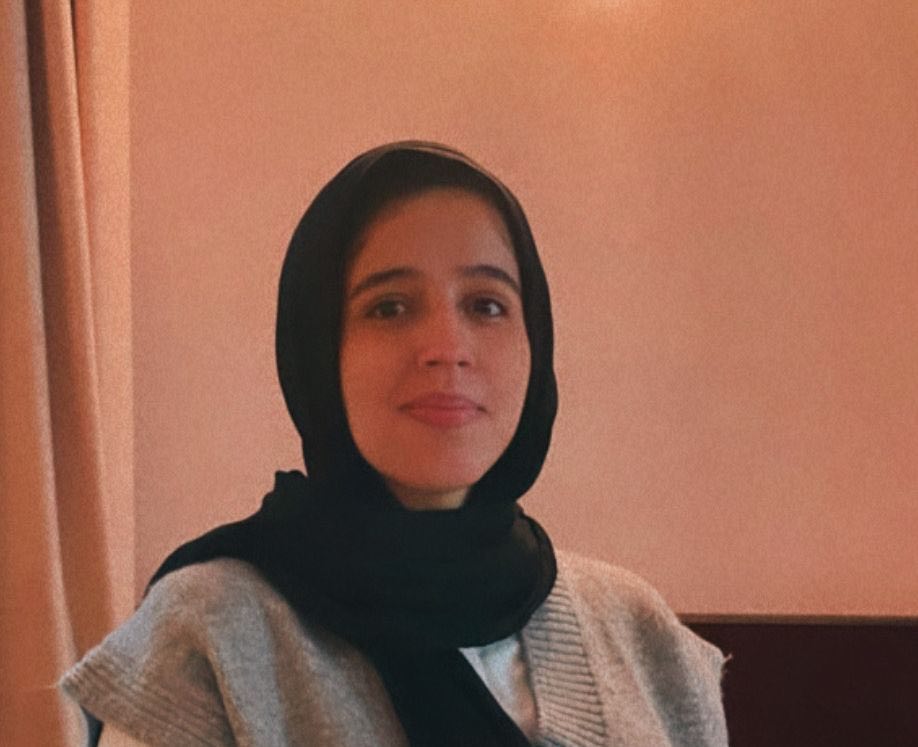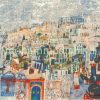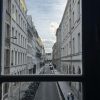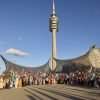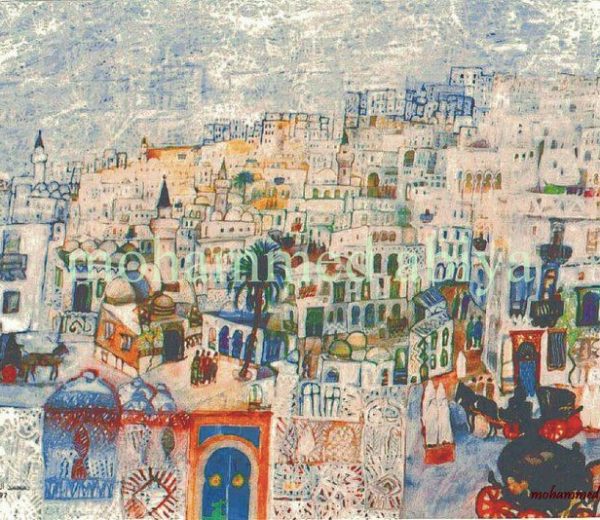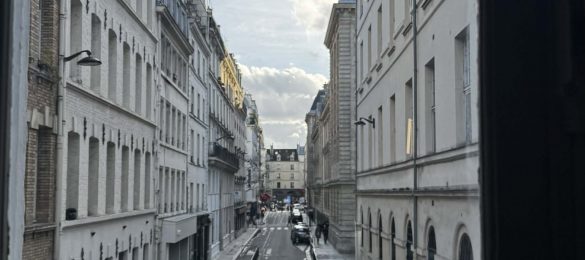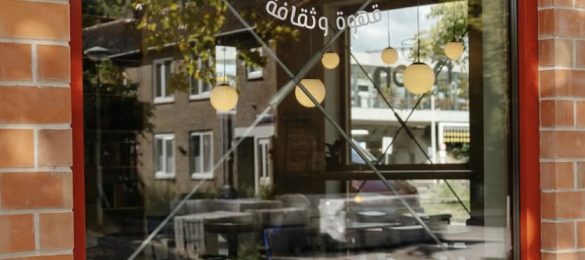Art affects society greatly, which results in a strong interdependence between art and social life. Art does this by instilling a set of values and opinions that in return affect a person’s sense of self. However, this is not always the case. Art could be perceived in a very complicated way. Many believe that there is still a wide gap between art and observers. Throughout this journey of documentation and researching, I came across an artist who made me think. I never thought that art would impact me personally in a very profound way. From Iraq to the Netherlands, I got to interview the artist Nedim Kufi to learn more about his life journey as an artist.
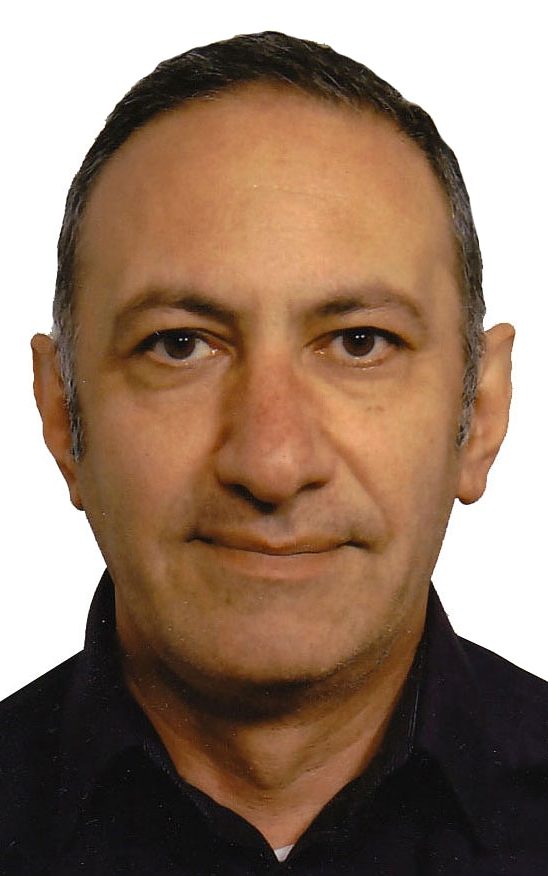
Nedim Kufi is an Iraqi-Dutch multi disciplinary visual artist based in the Netherlands since the early 1990s. His work is known for tackling many concepts such as politics, loss, war, and absence from an optimistic lens. Also, technology and how technological means could be incorporated in the art production process.
The First Childhood Memory With Art
Nedim Kufi’s first memory with art was explained through this line: ”Childhood is the capital of the mind”. It is always revisited and the idea of childhood must continue especially in art either in the behaviour or mentality. He sees himself in any kid who draws and through the conversation, Nedim brought his childhood notebook, the red notebook. In this notebook, he drew his first drawings and he was only 4 years old when his father got him this small notebook.
”Childhood is the capital of the mind”
I noticed that he first drew Arabic letters, numbers, and different shapes. Even the colour of the notebook is representative of the soul. His love for drawing developed as he grew older. In his school notebooks, his father always checked his homework but his father also discovered that half of the other side of notebooks were drawn on. When Nedim was about 10, he got introduced to children comic books.
At that time, comics were considered as cinema for him as they didn’t exist. He re-drew the comics and scenes he observed in the comic books as a mean of practicing. In addition, he learned to make toys for himself, for example a small structure of a car was made by only using bottles covers. It developed further to the memory he has with the odour of the magazines. When he was 12, Nedim made a full magazine and his father excitedly took him to the editor in chief of the same magazine Nadim was inspired by. The editor in chief told him to come back when he gets older and years passed and he ended up working in this magazine.
A Late Realization is Better Than No Realization
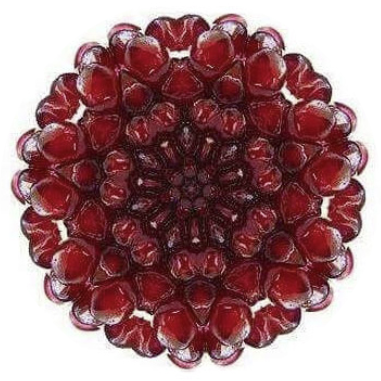
Kufi majored in art and he realized years later after he observed how art is taught in Europe, especially how liberal art is in the Netherlands, that what he studied was not enough and, in fact, was very limited in Iraq. He also elaborated on how art is used in the MENA region. The way it is more crucial because we take it as a responsibility to express our causes and conflicts.
It becomes more of a mission in life. We live the phases such as the unjust, injustice, and the dictator. He didn’t find a way to further draw the idea of these terms and in his mind, he avoids everything literal. Kufi doesn’t believe in the separation between artists and the general public. Art is a mean of friendship between the artist and the observer.
Art Has No Expiration Date
Another interesting aspect of Nedim’s work is that art is not still and produced work could be revisited again. Meaning that 5 or 10 years could pass after an artwork is produced but he can go to the museum to add further to the piece. There is no expiration date for an art piece. Art for him is the creation of questions by observers and not to satisfy or compliment the artist.
Who imagines produces and who listens also produces. The observation of how art is taught by indoctrination and not by free practice. When he studied in the Netherlands, he explained how unique it was. The experience of observation and production of new thoughts and ideas.
Nedim’s Relationship with Words
The word is known as a responsibility and it has huge influence on us as humans. I noticed through observing Nedim’s work the focus on letters and numbers, especially the manipulation of words in Arabic. He then got into coding and studied how codes are used in many ways. With his friend, they made a machine to create wisdom from random set of words. They called it the wisdom machine.
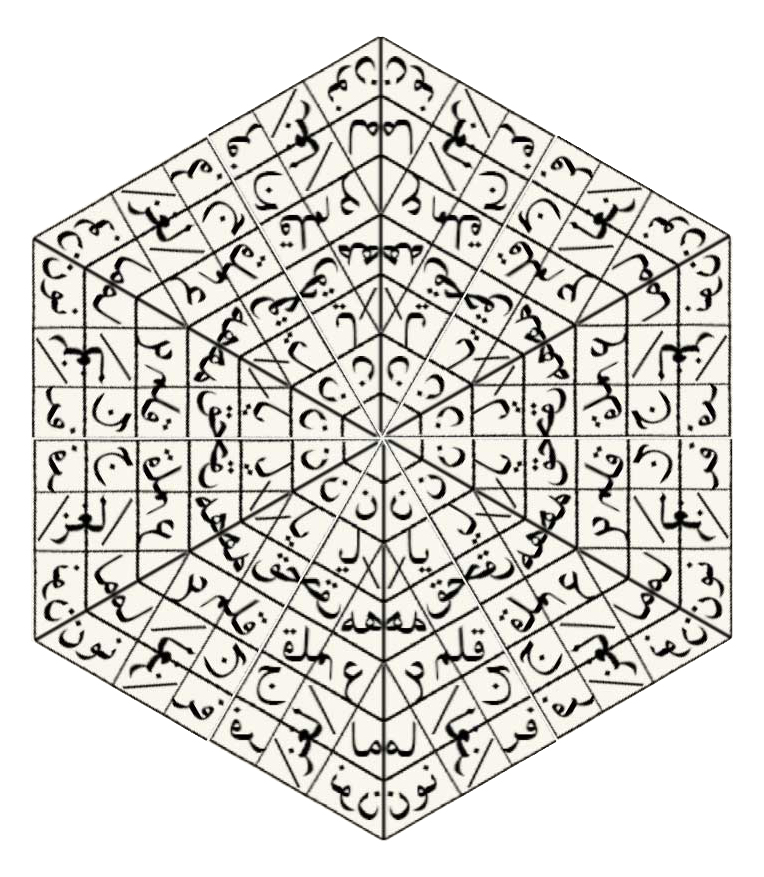
The machine would put two words together in a very random way and produces an illogical set of words. However, Nedim and his friend noticed the deep and direct impact of the new words. They discovered that there is no such thing called useless sentence. It surprised them with illogic production of words and how it would provoke the reader and our logic. For example of a produced term from this machine was water age, these two unlogic terms gives more of a picture to the reader.
The brain could receive from a very wide range and one can further develop this understanding. Now, Nedim has a collection of the words produced from the wisdom machine he created, it became more of a daily practice. This project is building up and the idea will be more clear in the future. It is more about improving this randomness of words created.
The Absence Project
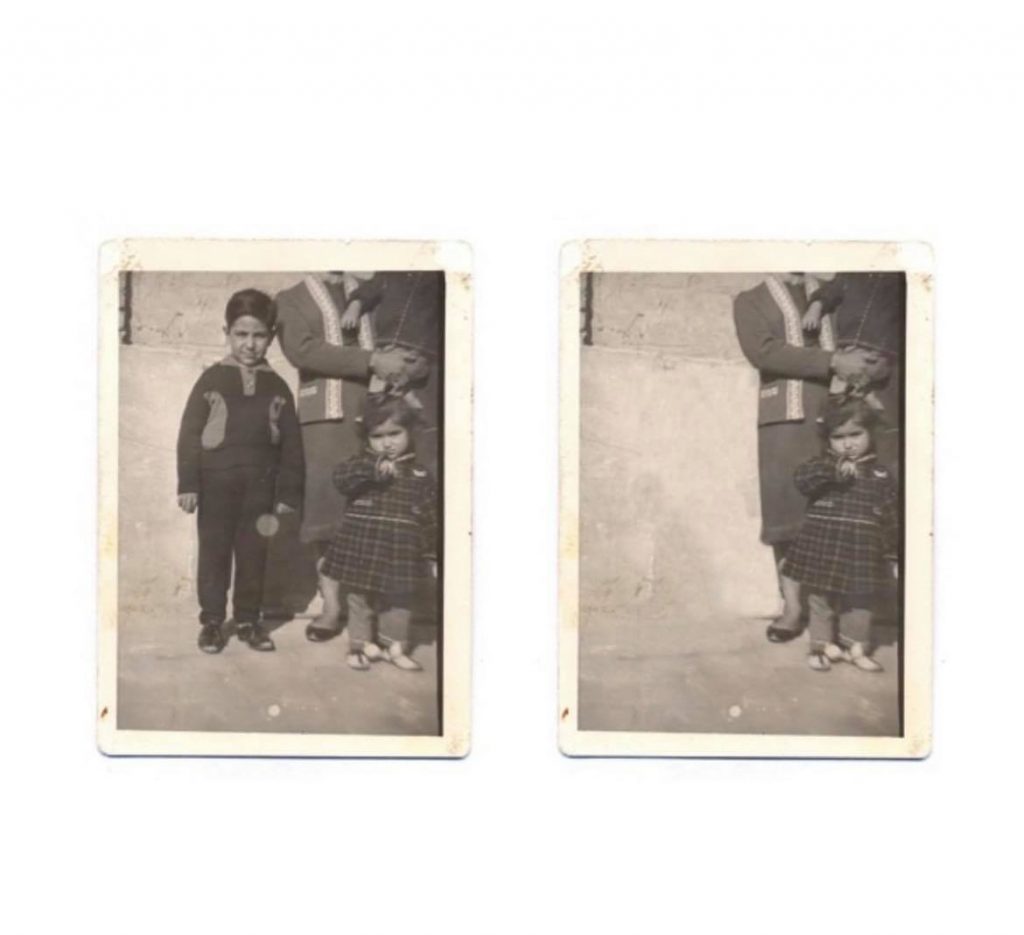
This artistic project tackles absence through Nedim’s experience and interpretation of this concept. Through this project, he used pictures of himself when he was young back in Iraq. He assumed that there is another Nedim, an imaginary person who is still in Iraq, struggling with the political issues and the society.
Through this project, he aimed to save the other Nedim who remained in the ”oven” as he described. The colonialization of Iraq by the United States and to revisit his childhood photos. He decided to remove Nedim from his old pictures and make him become absent. His responsibility was merely to safe that Nedim and to remove him from the picture but leave a void in place.
This void further means filling. Eventually, Nedim managed to save the other Nedim and mission was accomplished. For every project, there is always target. This project in particular was featured in Texas on the day George Bush was elected. The project was a mean to convict Bush for entering Iraq and the emotional impact was very clear on Americans. Following that, he received the apology he longed for from the Americans. The Absence project was also featured in Beirut, Dubai, and New York.
Romanticizing Home
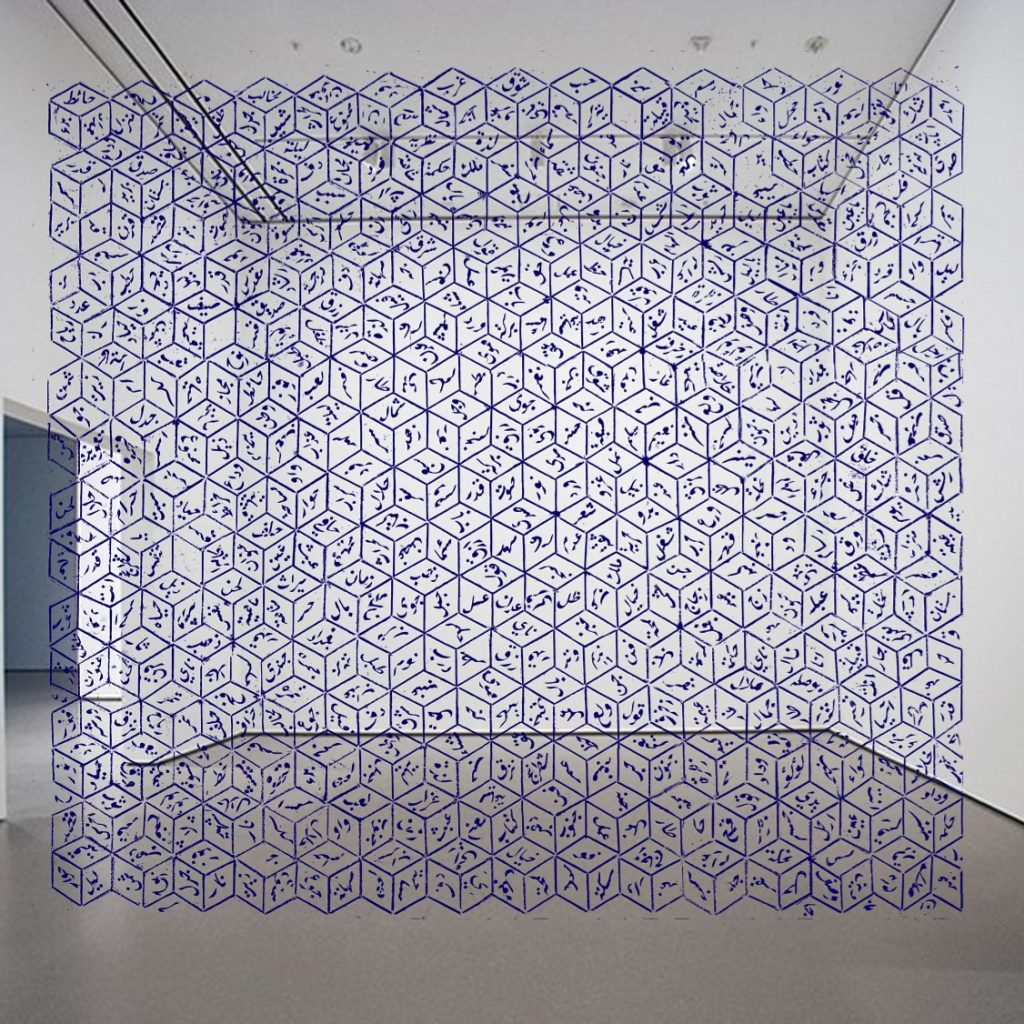
Through the interview, I asked Nedim if his work is influenced by his home country, Iraq. He expressed that he is thankful to immigration and the idea of home in the Arab region revolves around die for that home. The concept of humans made as sacrifice for their home countries is simply absurd. Some people would eventually pay this price of sacrifice. He is against legacy and inheritance. The two concepts don’t really give him any benefit and he describes himself as an international citizen. He does not have pain, tribe, or sadness. Moreover, he freed himself from these concepts which have been the reason of the region’s destruction.
”The Pride of the consumed old”
Nedim Kufi describing the interrelation between the past and the Arab region
The idea of living in a world to merely share it with everyone. He has a dream to create an open museum which is not like the typical museums that we know. Nedim also added that no profit is required from this open museum. Typical museums collect the work of the death or described more as a cemetery for art. The open museum must have no guards, no administration, and can be created from an old building. Kufi further hopes to keep all ideas on the walls of the building’s interior. The philosophy around this project is to have a better future because the past became sick, he added. It is one of the reasons why Nedim’s work is considered optimistic.
Orientalism of Art Concept
The orientalist from the foreign world visits the Arab World to transfer the orient region and add it in history. For Nadim, he is now a half orientalist and half of a foreign. But when he goes to the orient region now, he already knows it so he doesn’t become an orientalist like when a foreign does. The observation and experience here are completely different.
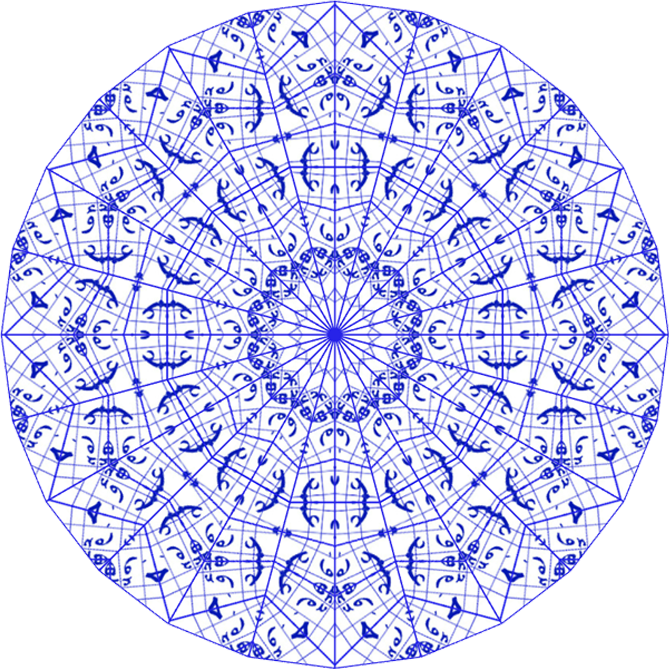
For him, it is to see the change in behaviour whether in relation to religion or the social practices. The concept provides a lens to see the orient from a new perspective and how the society in the region developed. There is no comparison with the west in this scheme but to take the situation as a whole. Nedim explained that he is looking at Iraq with a forgiving eye now. This shar9ana filter helps the observer to accept and mo3alaja.
An Announcement By Nedim Kufi
From this platform, DATA project is an announcement by Nedim Kufi to call all lovers and friends of art to participate with pictures, videos, or audio to be collected in an information bank which can further turn into an updated wisdom machine. The machine will further provide a set of result that can further provoke the observer in greater ways. It is based on multi-media elements and if anyone is interested, feel free to join this international project.
Nedim Kufi Website for more information: STUDIO NEDIM
You can now watch the full interview in Arabic on my YouTube Channel: Malak Altaeb – Libyan Wanderer – YouTube
